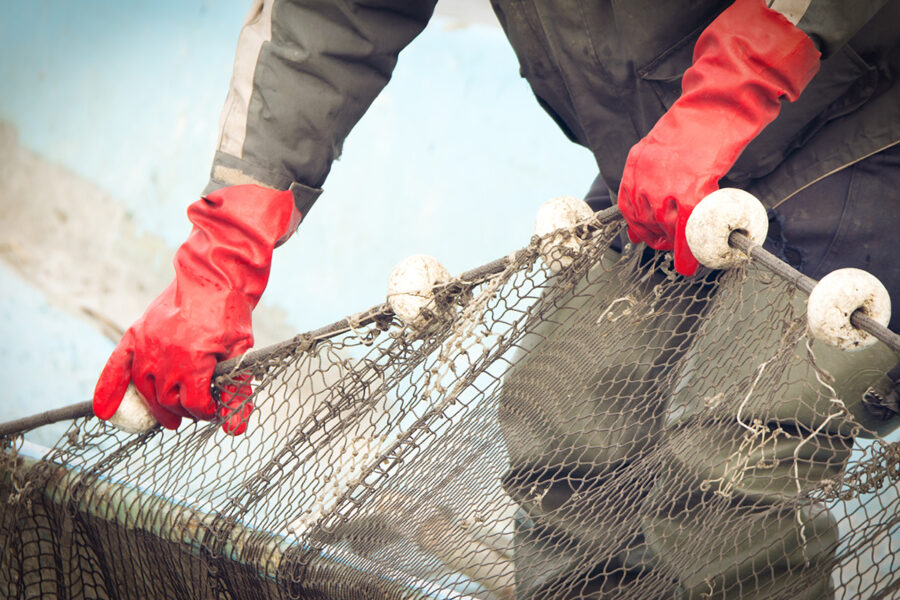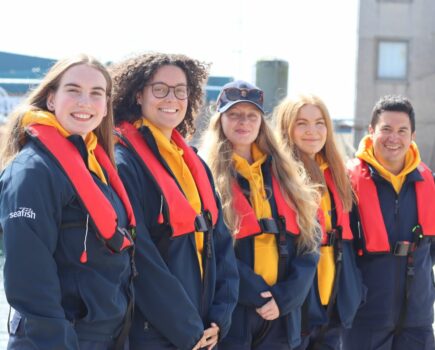The fleet on the west coast of Scotland has declined by 58% in the last eight years, and the number of full-time fishermen has fallen from 1,000 to about 400.
Elaine Whyte, secretary of the Clyde Fishermen’s Association, said the introduction of the various different types of MPAs was a key reason behind the decline, although there were other reasons, such as the ongoing issues with crewing.
This continues to be a major problem in the Clyde region, both in terms of employing migrant labour and in attracting local young people into the industry.
Prohibitive visa conditions make it difficult to employ foreign fishermen, and young people have doubts about the career prospects in an industry that appears to be in decline.
“A decrease of almost 60% in the fleet and number of fishermen is very significant,” Elaine Whyte told Fishing News.
“My personal feeling is that if we want a fishing industry, we need to be looking at upskilling, to make sure we’ve got the vessels and opportunities for the workforce and developing markets. People won’t come into the industry if they think it’s not stable, if there’s no boats or the boats are tying up.”
The CFA secretary said there was also a problem of depopulation in some coastal and rural areas of Scotland, but it was difficult to get this through to policy-makers, who tended work from the perspective of the densely populated central belt between Glasgow and Edinburgh.
With more Protected Marine Sites and MPA designations being discussed for Scotland, Elaine Whyte said: “When you’ve reduced a sector by almost 60% in eight years, I don’t know how much more they can take, I really don’t.”
She said there was the added complication in Scotland of two governments which ‘have different ideas about things’. There was a UK foreign workers system that was not working for Scotland, for example, and growing numbers of MPAs, someof which were under the control of the UK Government and some the Scottish Government. “They are all coming into play at the same time, and they will all have an impact,” she said.
She said training would be boosted when the new training hub opens on the Clyde in August. “We’ve got a very good manager, Johnny Walker, who helps me manage the Clyde Fishermen’s Trust. He’s been excellent at getting young people in and keeping them in the industry. He’s got a 95% employment rate after they’ve finished training.
“So we are getting there – but we still need access to foreign crew in some places because of depopulation. There ought to be visa concessions in areas of depopulation.
“I’m a big supporter of domestic crews, and that has to be developed for the future if we want a strong industry, but for now, we do need skilled foreign crew – but the visas are not there.”
This story was taken from the latest issue of Fishing News. For more up-to-date and in-depth reports on the UK and Irish commercial fishing sector, subscribe to Fishing News here or buy the latest single issue for just £3.50 here.
Sign up to Fishing News’ FREE e-newsletter here.








